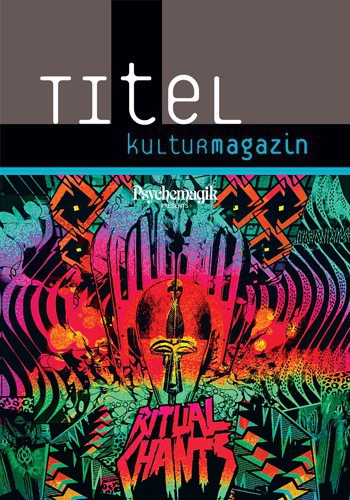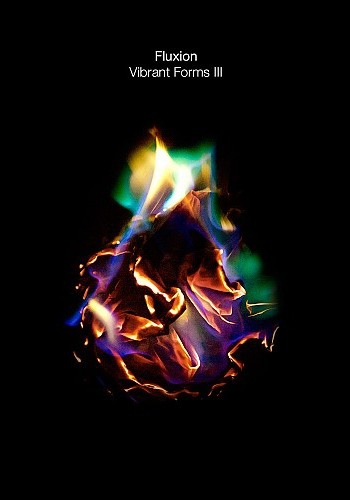Bittles‘ Magazine

It’s amazing how an album or song can come to represent a year, or a period of your life so completely that simply listening to it again is enough to take you right back to that time. Bryan Adams that eminent social historian from Canada ably documented this phenomenon of wistful nostalgia with his treatise Summer of 69. One particular record that has this hair-raising effect on me is God Fodder by the awfully named but really rather good Ned’s Atomic Dustbin, (or The Neds as they were rather affectionately known back in the day). Every-time I hear those jangly guitars, and freaky lyrics I am immediately back in those glorious days of 1991 when I would listen to the album repeatedly in my dark and lonely room. By JOHN BITTLES
I was a rave kid back then! I was even almost cool! My musical life being made up of a sweet mixture of techno and house such as Altern 8, The Drum Club and early Warp. Rock seemed like something from a former, less enlightened time when people walked around with clubs and were still frightened of fire. I would never sully my overly enlightened eardrums by exposing them to something that still adhered to the draconian verse, chorus, verse structure which electronic music had done so much to dispel. We were living the future, we had no time to delve back into the past!
Then one day, sitting watching late night MTV (it was actually good back in those days I swear!) this fast and funky song came on which made me gasp in appreciation and surprise. Kill Your Television by Ned’s Atomic Dustbin had just exploded into my life. This was only the band’s second release after The Ingredients EP and it was a ferocious mix of screaming guitars, strumming bass, and crashing drums. The vocals seemed to be about everything and nothing simultaneously, yet wasted absolutely no time in completely rocking my world. »She said, she said, ›you don’t know shit because you’ve never been there‹« as an opening line resonated with my impressionable teenage self. Matching this with a simple chorus of »Kill, Your, Television« that seemed both wise and rebellious, sounded like a work of staggering genius and instantly made me jump about the room.
God Fodder, the band’s debut album was released the following year (April 1991) and even though it was widely considered a leftfield record it still managed to reach the heady heights of number 4 in the UK top 40 album chart. In part this was down to the reputation the band had steadily built up around their energetic and ecstatic live shows which were almost legendary in the moshing mayhem they caused. Live, the band were a revelation! Lead singer Jonn Penney’s vocals were sung with a raw visceral power that let you know he meant, and felt, each and every word. The twin basses of Alex Griffin and Matt Cheslin added a deep, funky vibe that, somehow, perfectly complimented the thrashing guitars of Gareth »Rat« Pring and the almost drum n’ bass style drumming of Dan Warton.
With a signature live sound that came to be so synonymous with the band it would have been easy for the album to end up sounding a little bit flat in comparison. It wasn’t though! And if anything God Fodder actually improved The Ned’s experience. The smooth production of Jessica Corcoran really allowed Jonn’s vocals to stand out and become much more of a focus in the songs. While live his voice sometimes got lost within the wall of noise created by a guitar, two bass guitars, and pounding drums, on stereo the lyrics were allowed to speak to you directly with devastating effect. You could practically feel the pain he was expressing, experience his joy, and know that here was a modern poet of rare intensity who was more than worthy of our adoration.
Final song What Gives My Son?’dealt with father son relationships in such a way that it couldn’t help but resonate with any teenager who was having problems with their father. Even now, when I listen to that track it makes me experience an intoxicating mixture of sorrow, rage, and rejection. Lyrics such as »You’re my son, I’m older than you, You can’t be a man too. Your hair’s too long. Get out of my home. Get out of my home« ably describes the dysfunctional relationship between boys and their fathers everywhere.

Upon first playing the album the listener is hit with a manic swirl of guitars as Kill Your Television introduces you to the loud and angst-ridden indie-rock sound of The Ned’s. It would be simple to dismiss the album’s songs as one-dimensional noise were it not for those funky-assed basslines and the deeply introspective lyrics which somehow manage to hold the entire record together.
No matter how frantic and ferocious the music might get, the catchy choruses and earworm hooks on tunes such as Grey Cell Green and Throwing Things mean that the album never once becomes an uncomfortable or tiresome listen. Capital Letters and Happy are in essence pop songs, just with very loud guitars that grab you making you bounce up and down with joyful enthusiasm! Cut Up and Nothing Like deal with relationships and break-ups in such a way that it is impossible to not relate to their sorrow and pain. This is something that pop music does all too rarely these days.
The early nineties were, of course, the era of bands like New Fast Atomic Daffodils, Pop Will Eat Itself, Mega City Four and Carter the Unstoppable Sex Machine. Rock had taken the dynamism of acid house and created something new, fresh and electrifying. And in some ways it almost seemed as if these bands would pick the most ridiculous name possible in an attempt to avoid being seen as cool. Rather than concentrating on their image or marketing range these groups were more than content to let the music do all the talking. Observing this vogue with the gift of hindsight you realise that all this achieved was to ensure that they would have a limited time span, unable to gain respect whenever this particular fad would pass. It wasn’t long before journalists etc would scoff openly at these bands, yet for a few short years their naivety and non-conformist attitude was the most exciting thing around.
If someone asked me if God Fodder has stood the test of time I would find it difficult to give a coherent and honest answer since, for me, the album will always resonate and have a place in my heart. When I Play God Fodder now it does sounds like it was recorded over twenty years ago rather than something fresh, hip and new. And I have absolutely no idea what the average 15 year old today would make of it. For me though the record perfectly captures the early nineties mixture of euphoria and anomie as well as a sense of rebellion and experimentation which so perfectly symbolizes that particular time. It manages to represent the shift from staid eighties thinking of the ‘me, me, me’ society into something refreshing and new.
That the band never recorded anything to match this wonderful creation is sad though not a surprise. So many groups hit greatness on their first record only to spend the rest of their careers futilely attempting to grasp it again. Further albums Are You Normal and Brainbloodvolume may have been great yet never reached God Fodder’s glorious heights. With this particular set of songs it is the devastating effect of the mournful lyrics picking away at everyday life and lost or decayed love together with the joyful thunder of the rest of the band that makes it so special. Any record that makes you weep in sorrow, grind your teeth in anger, and beam with happiness, all in the space of one song is a very special listen indeed.
Photo: Calum Matheson
| JOHN BITTLES










